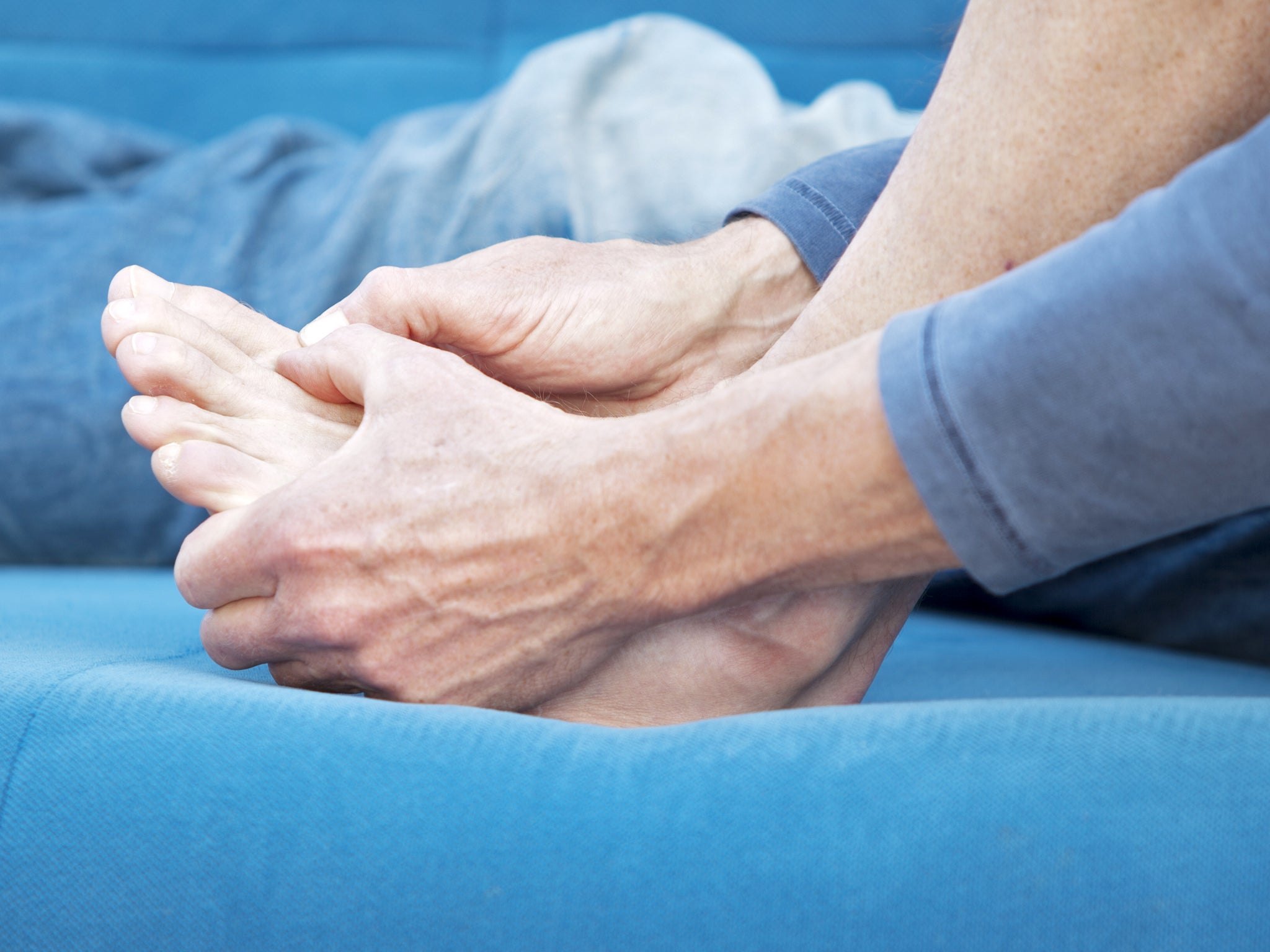Gout cases explode as doctors warn that the condition affects one in 40 Britons

Cases of gout in the UK have “soared” since the beginning of the 21st century, doctors have said, amid warnings that a condition traditionally labelled “the disease of kings” now afflict one in every 40 people – with the most incidences among the poor.
The condition, a severe kind of joint pain which causes swelling and redness, usually in the big toe, increased in prevalence by two thirds between 1997 and 2012 – or by around four per cent every year.
Men were around three times as likely to be diagnosed, and the highest numbers of sufferers were in the North East of England and Wales.
Gout is associated with being overweight, having high blood pressure, drinking too much beer or spirits and eating a diet rich in purines, compounds which are found in some foods, particularly in liver and sardines, as well as other red meats.
Because of its association with previously expensive foodstuffs and alcohol, it was traditionally known as a disease of the rich. King Henry VIII is believed to have suffered from it.
But writing in a study published in the British Medical Journal on Thursday, experts from the University of Nottingham and Keele University said that while gout “historically was considered a disease of affluence, the converse may now be true.”
The authors ascribe the geographical variations in gout prevalence to “differences in socioeconomic status, lifestyle and nutrition”.
Dr Weiya Zhang, from Nottingham’s School of Medicine, told i that the rise was likely to be a result of more people eating foods and drinking amounts that would previously have been the preserve of the rich.
“Widespread consumption of alcohol, seafood and red meats – a purine rich diet – is highly likely to increase new cases of gout,” he said. “Our diets have changed quite a lot in the past 20 years.”
Despite the increase in prevalence, the authors said that treatment for gout was as poor today as it was in the late 1990s.
Only a third of people were being treated with urate lowering drugs and fewer than one in five people were prescribed them within six months of their diagnosis – a pattern that had not changed since 1997, they said.
Gout is caused by a the formation of sodium urate crystals in the joints, which form after a build-up of uric acid, a waste product made by the body, which is created by the breakdown of purines.
The data on gout prevalence and incidence was drawn from the Clinical Practice Research Datalink, formerly known as the General Practice Research Database – one of the largest databases of long-term care records in the world, with health data on around 12 million people in the UK.
Join our commenting forum
Join thought-provoking conversations, follow other Independent readers and see their replies
Comments
Bookmark popover
Removed from bookmarks